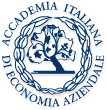Second Level Organisations (SLOs) in Voluntary Sector: an Italian Perspective
Paper presented to Concepts of the Third-sector. The European Debate - First European conference EMES-ISTR, April 27-28-29, 2005, Cnam, Paris
Voluntary organisations give an essential contribution to the development and growth of civil society in every European country and they are undoubtedly one of the most examined components of the Third Sector.
Much less attention has been paid, on the contrary, to the links among them, and to the relationships between voluntary organisations, other Third Sector’s organizations and Public Agencies. In particular, a very interesting and rather unexplored field of study is the analysis of the structure of the relationships among these Italian organisations, to understand how they cooperate and coordinate their activities to promote common interests, to represent their interests towards Public Agencies and so on.
This paper addresses the issue of voluntary organisations networks, called non-homogeneous Second Level Organisations (SLOs): a group of entities whose importance has been, in our opinion, deeply underestimated. In other words, we studied voluntary organisations whose members are not individuals but other organisations which are involved, in different ways, in the voluntary sector.
The purposes of SLOs are “transversal” to those of their members, because they are not connected with the field of activity of the members but try to satisfy common needs and to support them as a whole: consequently, SLOs do not carry out voluntary activity, but representation, promotion, coordination, etc. They can aim, for instance, to supply services to the voluntary sector and promote it, to encourage solidarity and cooperation in a specific field of intervention, to increase the cooperation between profit and non profit organisations, to do representation and lobbying activity with Public Agencies, etc.
The underlying research of this paper was done in 2003, in an Italian region in which the voluntary sector has features such as to make it significant for the whole Italian situation and therefore interesting for an international audience.
Our study gathered detailed data on 79 SLOs, 57 of which were analysed in depth with an interview. A structured questionnaire was used to collect information about: origins, history, members, mission, activity, organisational structure, legal form, finance, human resources.
Furthermore, we focused our attention on the relationships with other profit, non profit, and public organisations, for what concerns both their content and their stability.
Our paper goes into two of the most significant themes which were faced. First, we try to explain the birth and evolutionary path of the different groups of SLOs we found (especially, public and private ones). Second, we focus on networks and relationships, with a case analysis about those SLOs that work in the sector of handicap.




